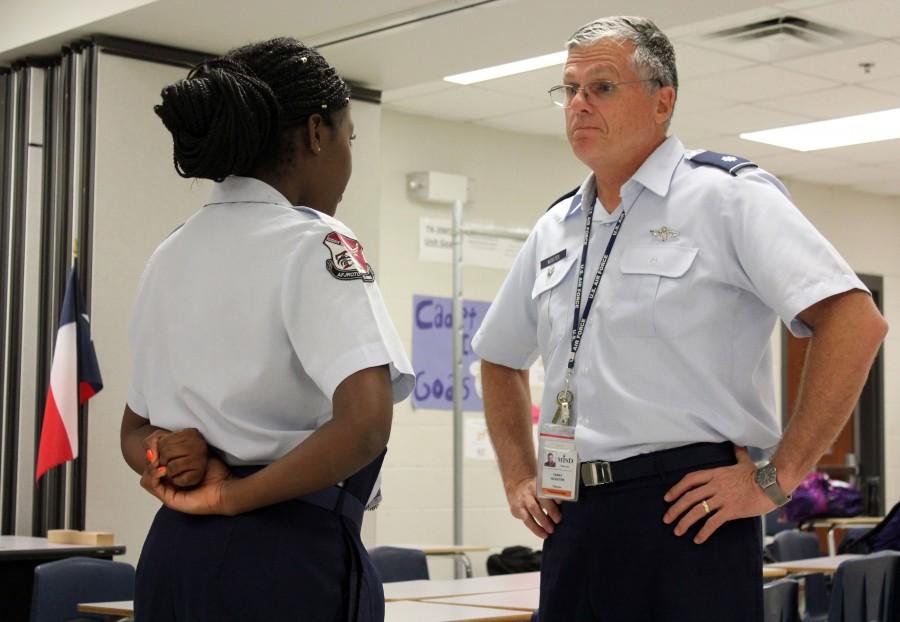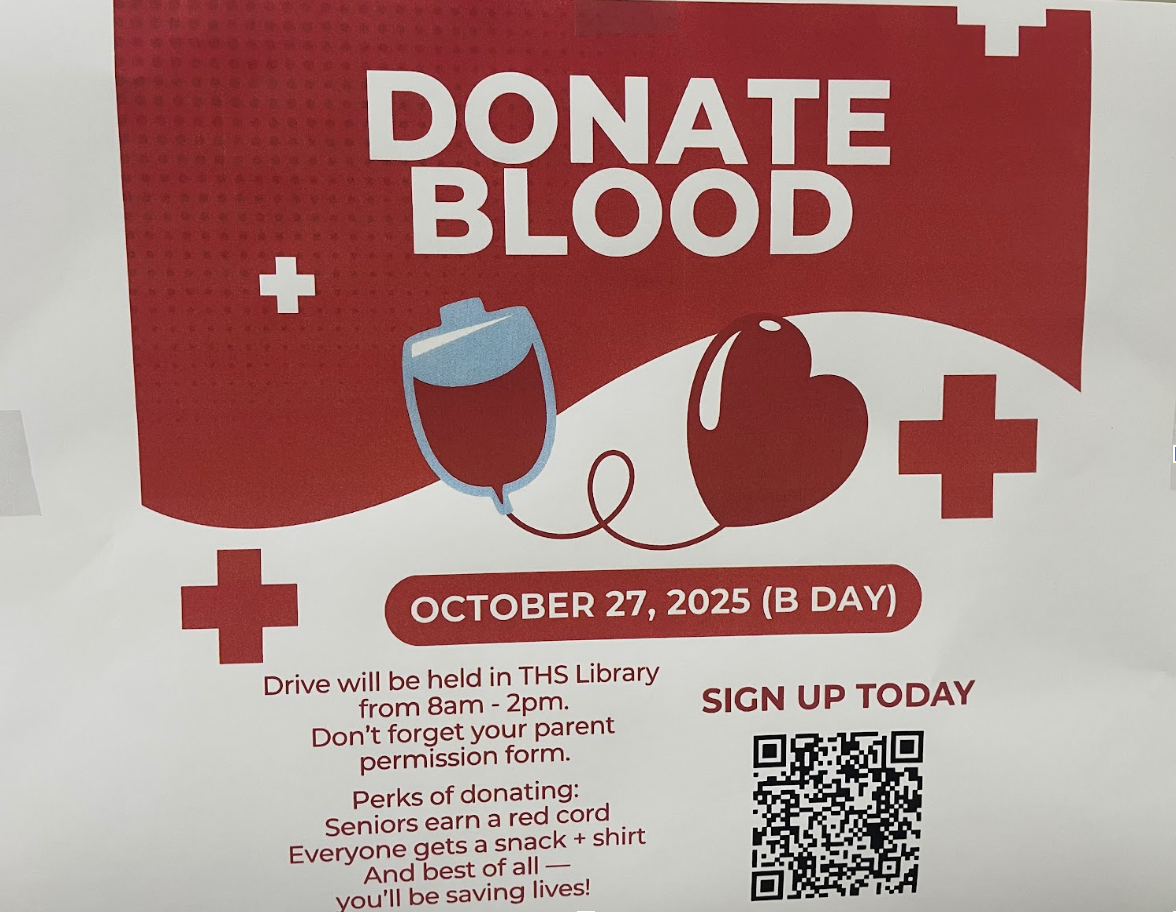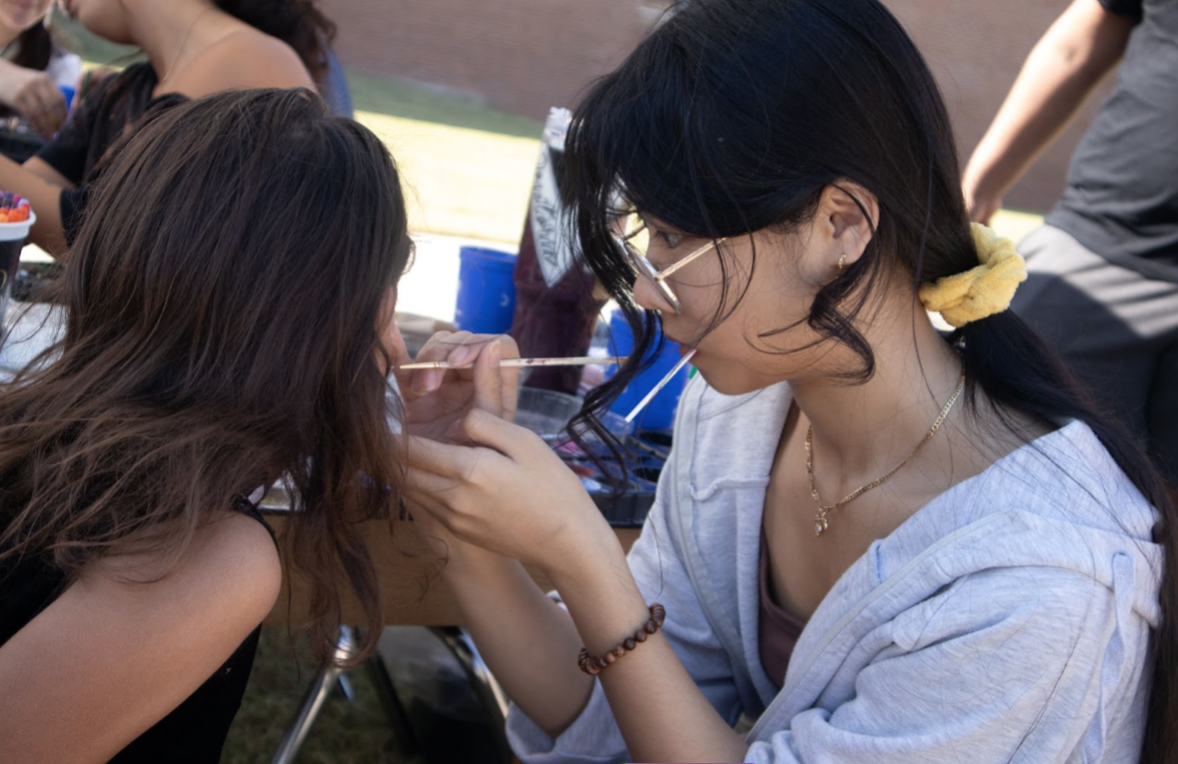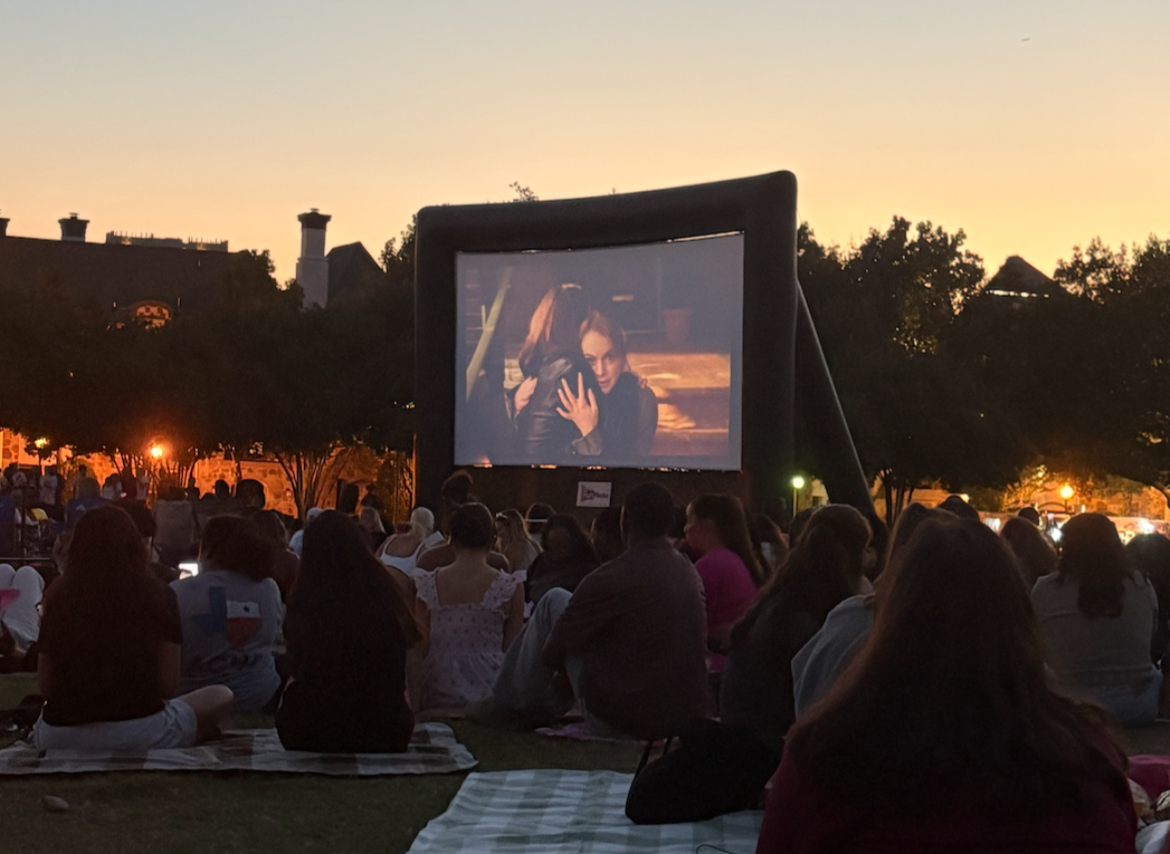Colonel Webster Reflects on 9/11 at Pentagon

During uniform inspection, Meta Tshiteya, talks to Colonel Webster about her future job in public affairs.
December 3, 2015
As the television plays endless clips recalling the deadly events of Sept. 11, 2001, he can’t believe it’s been 14 years.
So much time since American Airlines Flight 11 and United Airlines Flight 175 collided with the World Trade Center, United Airlines Flight 93 was brought down in the fields of Pennsylvania and the one he remembers most vividly, the American Airlines Flight 77, which hit the Pentagon.
“Some of the things are so emblazoned on my mind that I see them as if it just happened, ”Colonel Terry Webster, who instructs ROTC, said. “Sometimes it seems like just yesterday because the news stirs emotions and I recall events of what we hear each anniversary so clearly and, of course, it should never be forgotten.”
Webster was in one of the Pentagon cafeterias with an Air Force Inspection Agency team when the jet liner crashed into the building.
“I just can’t imagine,” he said. “What I went through is enough. I don’t want to go there.”
The story isn’t one he likes to share.
“His cousins didn’t know until this year,” Sherri Webster, Terry’s wife, said. “We go to family reunions every year and he never told them.”
Looking back, he said the day started like any other. He was on temporary duty to give the general of Air Mobility command a briefing on the Aerospace Expeditionary Force.
“To tell you the truth I was not supposed to be in the Pentagon on 9/11,” Webster said. “I was supposed to brief him two days before but he was busy and delayed until the morning of the 11, when I was supposed to give the general my brief.”
Presenting to generals was routine.
“We inspected how the Air Force Expeditionary Force was working by visiting deployed troops and interviewing them,” he said. “Once we did that, we put together a report and my job was to go brief the general on the finished report.”
He was excited to finish his day because it held significance.
“I was planning on being home on my wedding anniversary but when they delayed (the meeting), I had to be there to brief,” he said.
Webster called his wife apologizing in advance for his absence.
“He was supposed to be home and he said he was sorry he wasn’t going to be there for our anniversary,” Sherri said.
She didn’t mind.
“He was gone on a lot of holidays and on special days so we just celebrated things (later),” she said.
Webster said that he was looking forward to wrapping up the brief so he could head home.
“We were about 45 minutes away from our briefing, so we were eating breakfast in the Pentagon cafeteria getting ready,” he said.
The place was buzzing with talk about the news.
“One of the colonels that was on my team came by and said that (he’d) just heard (on a T.V., by the food line) that an airplane had hit one of the Trade Towers,” he said.
His immediate thoughts were that a smaller Cessna or a two-engine airplane had drifted and hit the building.
“But then another colonel on my team came and said ‘a second plane had hit the other tower,’” he said.
At first Webster didn’t believe it.
“No you’re mistaken,” he said. “You’re thinking about the one that (already) hit,” he said.
Then there was the hit.
Within a matter of minutes, Flight 77 collided into the Pentagon, between Corridors 4 and 5, outside of the E Ring.
“We were in the center ring just across from where it hit,” Webster said. “If I had gone to the inside then I could have been in a lot more trouble than I was.”
There was panic in the cafeteria.
“We felt and heard the thump but it blended in with the already high excitement levels so we did not recognize it right away for what it was,” he said.
Suddenly, the place was in chaos.
“A few minutes later an armed security guard came running in with a M16, in her arms saying, ‘Out everybody out, the Pentagon is under attack,’” he said.
Everyone filed out into the parking lot.
“It seemed so surreal like they were filming a movie,” Webster said. “The fire trucks and police were all on loudspeakers, going through the streets and parking lots, telling everyone to get away from the buildings.”
The Pentagon was aware of a fourth hijacked plane and officials were worried about where it might crash.
“We will probably never know (what) the true target was,” he said.
The fourth airplane was brought down in Pennsylvania.
“Of course, due to the courage of the people on board, it never made it to the Washington D.C. area,” he said.
He knew his loved ones would be concerned.
“They didn’t know for hours,” he said. “I was more worried about my family.”
Unable to reach him, his wife went to Kirtland Air Force Base to speak with his boss.
“The waiting was horrible (with) all the military people coming in and out,” she said. “They were all upset because Terry and the guys were there. They didn’t want to talk in front of me.”
His sons Dallas and Chase, who were both in high school at the time, were in class.
“My boys were sitting there watching it live on TV, knowing that’s where their dad was,” Sherri said.
Dallas was terrified for his dad.
“It honestly scared the hell out of me,” he said. “I was very scared that something had happened to him.”
That day 184 people lost their lives in the Pentagon. It was three hours before Terry could get a signal to call home.
“It made me absolutely more grateful for my dad’s service and sacrifice and more thankful in general for what all of our servicemen and women do,” Dallas said. “And for having my dad in my life because some people don’t have their fathers in their lives and they miss that.”
Because flights were canceled nationwide for three days, it was over a week before he was able to fly home.
“It makes me feel like our lives are more precious,” Webster said. “American lives are worth fighting for.”
After living through the incident, Webster felt the need to volunteer to join Operation Iraqi Freedom launched by President George W. Bush on March 19, 2003. He worked as part of the air war, in the unit called the Joint Task Force West.
“I just felt that before (9/11), I hadn’t done enough,” Webster said. “Even though I was in the Air Force I hadn’t done enough to convince myself that I was protecting lives.”
His wife was supportive of his decision.
“I’ve always felt that my husband was a hero; the military men are heroes,” she said. “(I’ve) always felt like we needed to do what we needed to do for our country. Thank God he came home safe.”
Sherri said she did not want her husband to leave again.
“We were used to him being gone and most of the time we didn’t know where he was (but now) I was scared to death every time he flew off,” she said.
Webster said he thinks of that day often.
“My wife would tell you that I probably have PTSD,” he said. “I don’t see it a lot but my wife says that it changed me.”
Dallas said he looks up to his father.
“My entire life, my dad has been my hero,” he said. “It made me realize that (he) could have been taken away in an instant by something that I couldn’t control.”
He doesn’t often share the details of that day with his students.
“I’ve been teaching for 10 years and I enjoy the class,” he said. “I love working with the younger generation and seeing them become successful. We have to have a strong military to keep our freedom.”
For the first few years afterward, Sherri said their anniversary wasn’t celebrated.
“It was just really hard to get back into the whole happy anniversary part,” she said.
Webster never forgets the date.
“My anniversary helps me get away from (memories of that day) and if I do something special with my wife at least I’ll still have that,” he said. “It’s a silver lining. The future’s still bright. We can get over this.”





